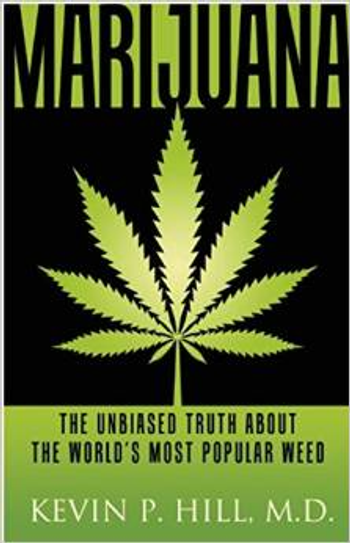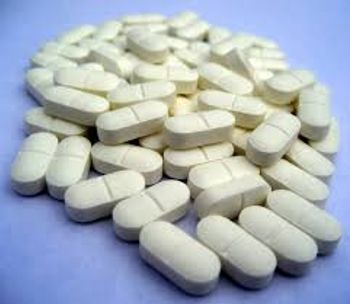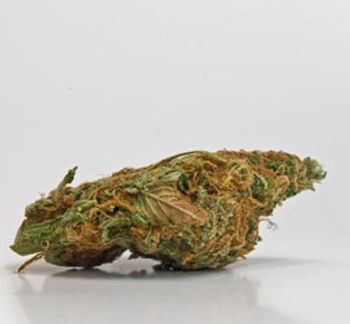
An interesting history, key myths, and the pros and cons of marijuana are explained in this book.

An interesting history, key myths, and the pros and cons of marijuana are explained in this book.

The articles in this Special Report provide a broad, cross-cutting perspective on the current state of addiction psychiatry, insofar as it may pertain to your own clinical practice.

While opioid dependence is among the most severe and lethal of addictions, it also has the most effective medication treatments. The authors provide 2 case vignettes and a step-by-step process for clinical decision making.

A review of the pharmacological and symptomatic effects of various classes of designer drugs, including stimulants, hallucinogens, and sedatives.

Current trends are toward relaxing laws on cannabis, but no one knows the likely outcome. Will legalization mean an increase in consumption? Psychiatrists will be on the front lines if and when problems arise.

A discussion of treatment options to help foster the most effective psychosocial treatment for addiction.

There are probably few health care professionals who are unaware of the concerns about the apparent overprescription of opioids. However, we have had only limited information on how good a job physicians may actually be doing in prescribing these medications.

The authors use a 3-step process to identify and evaluate published research with findings that are ready for-and that have a direct bearing on-clinical practice.

There is increasing evidence that individuals who try marijuana during their early teenage years are affected neurologically for a decade or more at least until one's 20s and perhaps even longer. More in this video.

In clinical terms, one of the most distinguishing diagnostic features of addictive disorders is that those affected continually and repeatedly revert to their addictive behaviors, despite the devastating negative and adverse consequences.

Is your older patient using or abusing drugs or alcohol? This video reviews how general psychiatrists can provide effective intervention when a substance abuse problem is identified.

Given the pervasiveness of substance use disorders, the information provided here is relevant not only for addiction psychiatrists, but all mental health providers and primary care physicians.

This brief communication highlights clinically applicable information and take-home points presented at the American Academy of Addiction Psychiatry Annual Meeting.

Medication misuse and alcohol abuse are a huge problem in the US, and women and the elderly are not exempt. In this Q&A, an expert touches on the epidemiology, recognition, assessment, and treatment of substance use disorder in these two populations.

Because at least 10% of the US population suffers from a substance use disorder in any given year, the American Academy of Addiction Psychiatry has expanded its longstanding Board Review Course in Addictions to a more inclusive “Addictions and Their Treatment” course.

How does the diagnosis and treatment of substance use disorders fit into the general practice of psychiatry? Dr Laurence Westreich, President of the American Academy of Addiction Psychiatry, addresses that question in this podcast.

An overview of select topics in clinical psycho-oncology, including assessment and management of delirium and brain lesions, mood and anxiety disorders, medication adverse effects, and existential death anxiety.

The use of buprenorphine for the treatment of opioid dependence is on the rise. However, buprenorphine withdrawal has its own withdrawal symptoms that in many cases can be as severe as symptoms of opioid withdrawal.

In a world in which substance use disorders are no longer suffered in isolation, treating addiction is a challenging journey with obstacles, intermittent failures, and life-altering successes. A poem on drug withdrawal expressed through the eyes of a fellow in addiction medicine.

There probably isn't anyone who is not a Robin Williams fan and admired his wonderful talent. Everybody experiences his loss and death as something personal. More in this podcast.

A guide for helping patients understand heroin, its history, and how it impacts our communities.

Severe alcohol dependence and frequent relapses in this patient prompts his son to produce a durable power of attorney for health care. He demands that the physicians declare his father to lack decision-making capacity. More in this ethics case report.

There is increasing evidence and support for medications for alcohol use disorders to be used in regular clinical practice, and not to be limited to specialty substance abuse settings. Here, special considerations for pharmacological management.

In the US, 38,000 drug overdose deaths occur per year, and it is estimated that 75% are opioid-related. The good news is that addiction is a treatable disease. More in this discussion of opioid addiction, the use of naloxone, and Good Samaritan laws.

Clinicians will be drawn in by author Charles R. Cross's personal experience documenting, Here We Are Now: The Lasting Impact of Kurt Cobain. Cobain, lead singer of Nirvana, committed suicide 20 years ago this month.